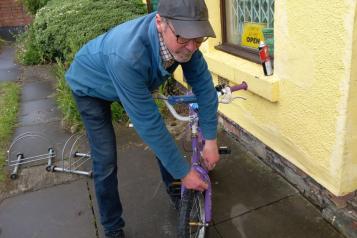Cost of living - a barrier to healthcare for the most vulnerable

Over the last year, many charities and campaign groups have warned that millions of people are struggling with the cost-of-living crisis.
We have heard from our Healthwatch network about the impact the rising cost of living is having on people.
To understand the scale and nature of this impact, especially on people’s health and their use of health and care services, Healthwatch England commissioned a nationally representative (of England) poll. They reported findings from waves 1 and 2 earlier this year.
Key trends
The poll of 2000 adults in England, conducted four times between October 2022 and March 2023, suggests that people are increasingly avoiding vital health and care services due to the fear of extra costs:
- going to a dentist because of the cost of checks ups or treatment
- booking an NHS appointment because they couldn’t afford the associated costs, such as accessing the Internet or the cost of a phone call
- buying over the counter medication they normally rely on
- taking up one or more NHS prescriptions because of the cost.
Rising costs further exacerbate health inequalities
The financial burden of healthcare is weighing heavily on specific groups:
- people on disability benefits
- people on means-tested benefits
- and younger people, aged 18-24.
We’ve found that people from these groups are more likely to be making tough decisions to avoid essential services.
Travel is difficult, buying medicines sometimes hard.
The cost of living should never be a barrier to care
As a patient champion, we are worried that vital health and care services are out of reach for many people.
We know that people living with ill health and disability are already much more likely than others to be pulled into poverty because of spiralling costs. Making decisions between eating, medications and keeping medical devices running, can further impact their physical and mental health, putting them in danger.
In Healthwatch Coventry’s recent research we found over a third of people were finding it difficult to pay for travel to appointments, pay for over the counter medication and harder to use the internet. The highest level of difficulty in payment was a visit to the dentist, with 40% saying that the rising cost of living was impacting on their ability to do this.
The cost of living should never be a barrier to healthcare. We fully believe that with the right changes, the NHS can genuinely provide high-quality care, free at the point of need on an equal footing for everyone.
Our recommendations
While we welcome the support already in place, social tariffs and schemes must be better communicated to the people who need it.
The government working with health and care services must also go further to support people in the cost-of-living crisis.
Tangible actions
Healthwatch England have set out immediate tangible actions. These include offering people over-the-counter medications on prescription when needed. Another action is to ensure that hospital and GP phone numbers are part of the freephone service, so cost is never a barrier to phoning a health service.
Find out more
You can find out more, including a link to the full survey results, in the article on Healthwatch England’s website:
Read more about Healthwatch England's research
You can get help locally through Coventry City Council’s cost of living support page: Council Cost of living and wellbeing support
Read our information and advice article on looking after your mental health during the cost of living crisis:


